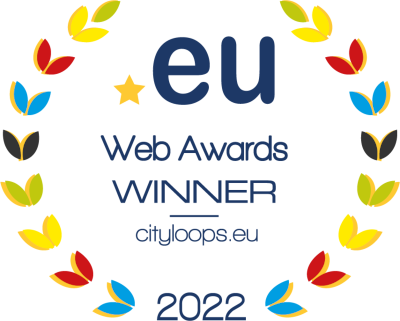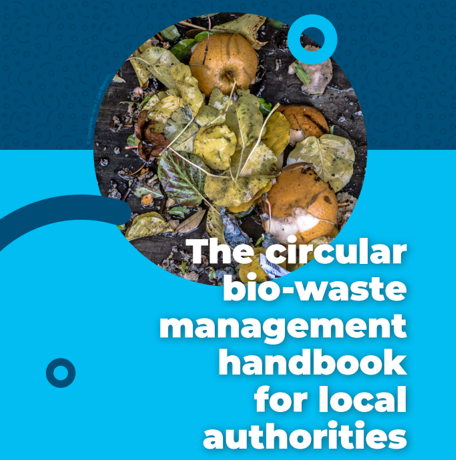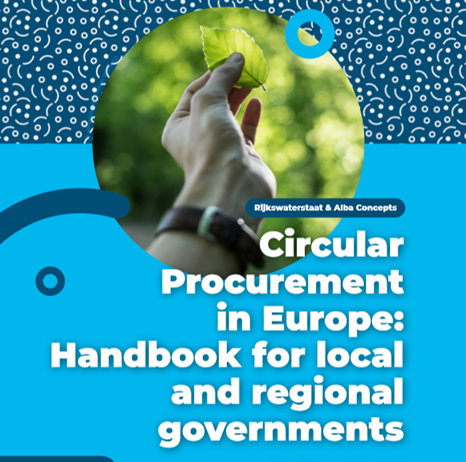Key publications
Circular construction in Europe: handbook for local and regional governments
The handbook on circular construction, aimed at local and regional government, provides a comprehensive overview of how the lessons learnt and main insights from the project can be most effectively applied in other contexts. The handbook features practical examples outlining how cities implemented the tools they developed, why they made certain decisions, what they could have done differently, and how all this fits into the broader context of European circular strategies and policies.
The handbook aims to help local and regional authorities and other relevant stakeholders understand the context in which the transition to a circular construction sector could happen and the financial and environemntal benefits it might bring, explain how implementing a circular construction strategy could impact the organisation inside and outside the local authority, and highlight the different steps of the value chain that may be encountered in a circular construction project.
The circular bio-waste management handbook for local authorities
CityLoops seeks to contribute to the further implementation of the circular bio-economy across Europe. Nevertheless, shifting away from the linear economy presents several challenges. The purpose of this handbook is to illuminate the path forward, offering a comprehensive view of the challenges at hand, as well as practical recommendations for enhancing the circular management of bio-waste.
The handbook is intended for a diverse audience of local government practitioners, including waste managers, urban planners, environmental protection officers, procurers, and politicians seeking a deeper understanding of the subject. It is divided into two main sections. The first section focuses on how to implement circularity, while the second centres on enabling circularity, with a specific emphasis on bio-waste and biological cycles.
CDW circular toolkit for local and
regional governments
Within CityLoops, several instrument addressing circular construction and demolition projects have been developed and used by the project cities in their demonstration actions. As part of the legacy of the project, the Replication Packages are meant to make these experiences from demonstration actions and instruments in CityLoops available for other cities in Europe to use and replicate. They address specific actions within circular construction, for instance guiding cities in choosing a method for registering data and creating a material passport, helping them in the creation of a flow for recycling concrete, or giving them instruments for evaluating the possibilities of reusing soil on-site.
Bio-waste circular toolkit for local and
regional governments
This toolkit collects and presents 10 instruments related to bio-waste that have been developed and tested within the demonstration actions, in four cities and towns: Apeldoorn, Mikkeli, Porto and Seville. These instruments have been developed considering local needs, integrating state of the art research, as well as some elements of peer reviewing. The collected instruments include specific tools, guidance documents as well as blueprints, and cover different types of bio-waste, primarily food and green spaces waste. The toolkit is aimed at cities and towns across Europe looking for ready-to-use solutions to embed circularity within their daily activities in the bioeconomy sector.
Sector-wide Circularity Assessment - biomass
This Sector-Wide Circularity Assessment provides contextual information on four different CityLoops cities and their biomass sectors. It illustrates how circular these sectors are through circularity indicators and a Sankey diagram, and analyses and interprets the results, presenting the limitations of the data used. Finally, it offers recommendations on how to make this sector more circular. The assessment was carried out by the cities themselves after receiving extensive training on data collection and data processing. Further insights can be found in the individual Data Hubs of each city.
Sector-wide Circularity Assessment - construction
This Sector-Wide Circularity Assessment provides contextual information on six different CityLoops cities and their construction sectors. It illustrates how circular these sectors are through circularity indicators and a Sankey diagram, and analyses and interprets the results, presenting the limitations of the data used. Finally, it offers recommendations on how to make this sector more circular. The assessment was carried out by the cities themselves after receiving extensive training on data collection and data processing. Further insights can be found in the individual Data Hubs of each city.
Urban Circularity Assessment
The Urban Circularity Assessment is an urban material flow and stock accounting method paired with system-wide indicators to assess the material circularity of a city. The overarching aim of the UCA is to monitor progress toward a Circular Economy from an economy-wide perspective at the city-level, rather than just at the level of individual products or sectors. Only at this scale can system-wide effects like displacement and rebound be captured, as well as the determination made whether absolute reductions in resource use and waste flows have been accomplished or are feasible.
Circular procurement in Europe: handbook for local and regional governments
The handbook provides tools to establish the necessary conditions for both internal and external factors, including stakeholder engagement and knowledge creation, to facilitate the effective implementation and success of a circular procurement project. Furthermore, it offers practical guidance for project implementation. This includes examples and tools for incorporating circular procurement practices during the pre- tender, tender, and post-tender activities. Finally, it outlines methods to ensure the scalability and integration of these activities as the new norm within an organisation.
Recommendations for EU and national policy makers to accelerate the circular transition in cities
This policy brief proposes 12 recommendations targeting EU and national policy makers and addressing barriers faced in the implementation of CityLoops Demonstration Actions, with the aim to accelerate the circular transition of cities. It includes general recommendations, addressing cross-cutting and structural issues observed during the project, sector-specific recommendations to enable circularity in both the construction and demolition waste and bio-waste streams, as well as procurement-related recommendations to empower local governments and public procurers.










